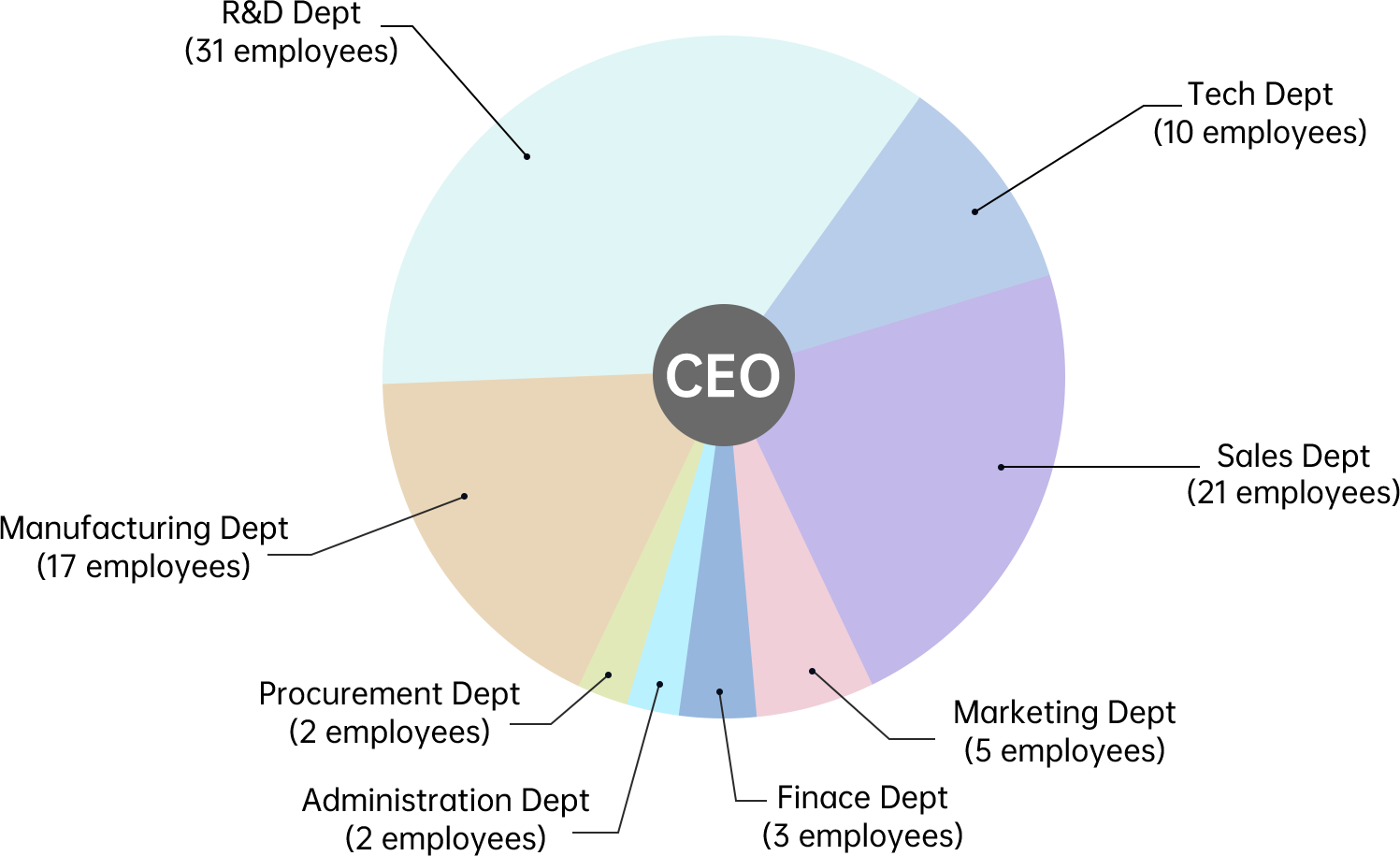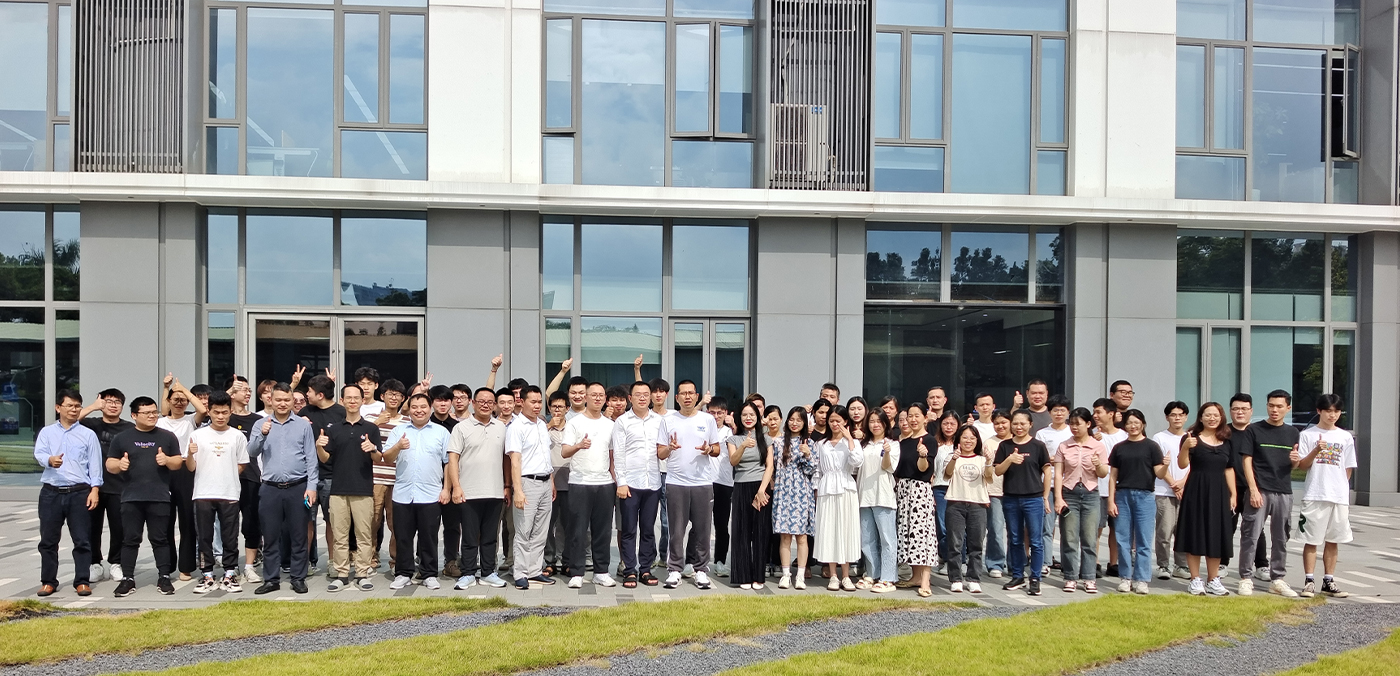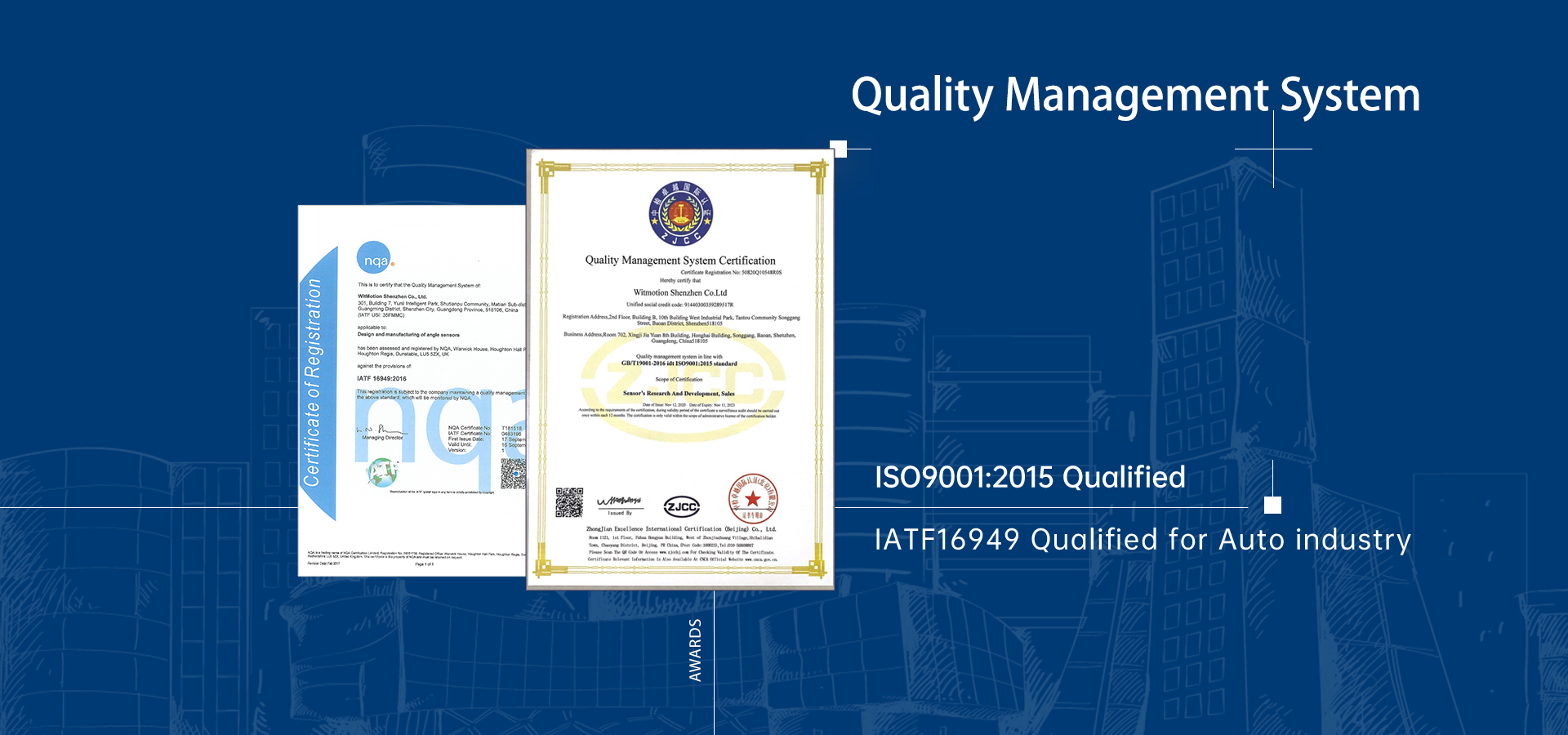Success Case
Customers
Team member
IMU Sensor
Company profile

Established in 2015, WitMotion Shenzhen Co, Ltd integrates the research and development production, sales, and service of attitude sensors, and aims to become a global leader in attitude sensors, AHRS IMU.
ln 2018, widely used every day by customers in over 80 countries for energy and electric power, tower control, Monitoring, engineering machinery, medical, academic, integrated systems, and more developing projects and regions, and were recognized by the industry and users.
WITMOTION's R&D Dept owns the 35+professional engineering industry's top R&D team and collaborates long-term with the Beihang University Ph.D. team. The sensor mainly includes inertial, IMU, and RTK positioning sensors.


 R&D Algorithm
R&D AlgorithmDerived algorithm from aeropace level, our own R&D algorithm, filterings
 End-loop Technology
End-loop TechnologyFactory-calibration, aging testing, completely end-loop technology and facilities, top advanced turntable, high & low temperature & humidity chamber
 Throughout Management
Throughout ManagementSupplier, factory strict-management and review system
 Cost-effective Solution
Cost-effective SolutionElectronic components inspection, control, ensuing quick leadtime and reasonable price
